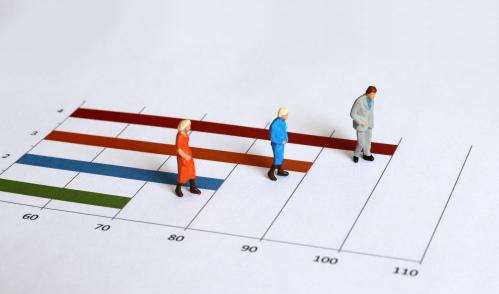An additional year of college decreases mortality rates by 15 to 19 percent by reducing deaths from cancer and heart disease, according to one of the first pieces of research to examine the causal effect of college education on mortality by Brookings Visiting Fellow and University of Chicago Professor Ofer Malamud and co-authors, published in the new Journal of Health Economics.
The study, which notes that health benefits from education could increase the total returns to education by 15 to 55 percent, is important for policymakers currently grappling with proposals to reduce the high cost of college.
In addition, veteran status has a statistically significant protective health effect (conditional on survival) potentially due to higher rates of health insurance access, the paper finds. The authors also show that increased college education leads to both higher earnings and higher rates of health insurance.
An additional year of college decreases mortality rates by 15 to 19 percent by reducing deaths from cancer and heart disease.
In “The effect of college education on mortality,” Kasey Buckles of the University of Notre Dame, Andreas Hagemann of the University of Michigan, Malamud, Melinda Morrill of the University of North Carolina, and Abigail Wozniak of Notre Dame use Census data from 1980 and Vital Statistics data from 1981-2007 to examine the variation in years of college completed as a result of draft-avoidance behavior during the Vietnam War. The authors were able to examine the variation in college attainment for white men who reached ages 38-49 by 1980 to examine the impact of college on adult mortality.
The researchers point to prior research showing the correlation between education and health, including later life mortality. For example, high school graduates have a mortality rate that is double those with some college or a college degree, which “represents a significant non-pecuniary return to education. They would also imply that policies meant to increase educational attainment could serve as an important means for improving health.”
With the recent large increase in students entering college as well as the fact that health disparities across education groups have widened in recent decades, U.S. policymakers need to look more closely at this education-health relationship, and it is likely to be different in the post-secondary years compared to the compulsory K-12 years, they write.
The findings in this paper have important implications for both health and education policy. People value health, and the health returns to education may represent a substantial fraction of the pecuniary returns. If individual investments in college education are suboptimal because of credit constraints, externalities, or lack of information, the presence of additional health returns to college strengthens the case for subsidizing education.
This is particularly relevant given recent discussions about the rising cost of college and the decline in federal financial aid for college students. On the other hand, a positive causal impact of higher education on health may pose a dilemma for health policy. Health improvements, like smoking cessation, may reduce health care costs in the short run only to increase them in the long run as individuals live longer or as other health issues arise. Our analysis will help inform policymakers interested in the link between education policy and national healthcare spending.





